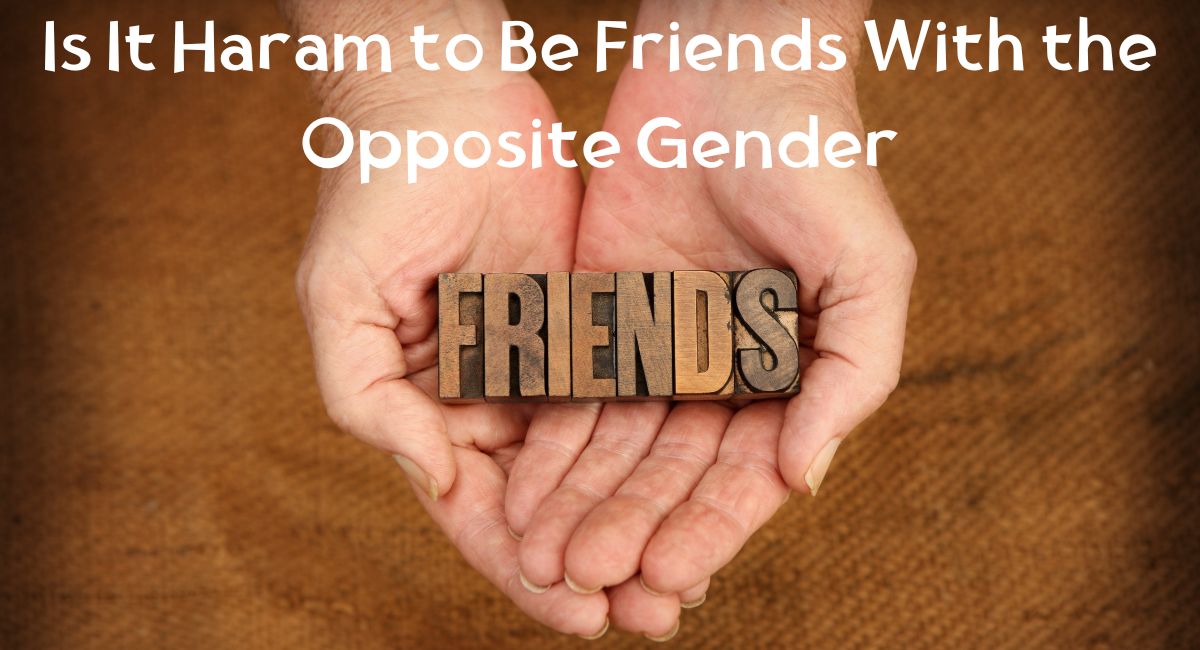In a world characterized by diverse cultures and beliefs, questions surrounding the boundaries of social interactions often arise.
One such question that has sparked considerable debate and discussion within various religious and cultural contexts is whether it is considered haram (forbidden) to be friends with members of the opposite gender. This inquiry delves into the complexities of social norms, religious interpretations, and personal convictions, shedding light on the diverse perspectives that exist on this issue.
In this article, we will explore the concept of opposite-gender friendships from different cultural and religious standpoints, aiming to provide a comprehensive understanding of this intricate topic.
Key Takeaways
- In Islam, friendship is highly valued and considered a divine blessing, providing support, companionship, and solace.
- Islam emphasizes the influence of friends on faith and encourages the selection of friends who possess God-consciousness.
- The question of whether it is haram to be friends with the opposite gender in Islam elicits varied opinions.
- Quranic guidance emphasizes the importance of modesty and chastity in interactions between men and women.
- Hadiths provide insights into the Prophet Muhammad’s interactions with women, emphasizing respect and modesty.
- Islamic scholars have different opinions on opposite-gender friendships, with some advocating for strict limits and others taking a more nuanced approach depending on cultural factors.
- Islam places great emphasis on respecting and maintaining appropriate boundaries in relationships, both physical and emotional.
- Intentions play a crucial role in opposite-gender friendships in Islam, with a focus on aligning intentions with Islamic principles.
- The permissibility of online friendships with non-Muslims in Islam is subject to various interpretations, with some emphasizing limitations and others allowing communication based on necessity.
- Islam encourages believers to interact respectfully, professionally, and within the boundaries set by the religion.
How Does Islam Define Friendship
In Islam, friendship is highly valued and considered a divine blessing. It is regarded as a means to overcome loneliness and solitude, and a source of solace and support during difficult times. The Islamic perspective on friendship emphasizes several key aspects:
- Divine Blessing and Support in Adversity: Friendship is seen as one of God’s greatest gifts. A good friend offers refuge and comfort in times of hardship, and their presence is crucial in a world full of challenges. This view highlights the importance of companionship and support in overcoming life’s difficulties.
- Influence of Friends on Faith: According to Islamic teachings, a person is significantly influenced by the faith and character of their friends. Therefore, it is crucial to choose friends wisely. The Prophet Muhammad (pbuh) emphasized the impact of friends on an individual’s faith and life path, suggesting that one should befriend those who are righteous and virtuous to stay on the straight path.
- Emotional Connection and Mutual Feelings: Friends in Islam are described as individuals who share and empathize with each other’s feelings, both in joy and sorrow. This aspect underscores the emotional bond and mutual understanding that characterizes true friendship.
- Selection of Right Friends: Islam places importance on the selection of friends, encouraging the cultivation of friendships with those who possess taqwa (God-consciousness). This criterion ensures that friendships align with Islamic values and help in maintaining a faithful and righteous life.
Is It Haram to Be Friends With the Opposite Gender
The question of whether it is haram (forbidden) to be friends with the opposite gender is one that elicits varied opinions within the Muslim community. This subject should be approached with an understanding of Islamic teachings, scholarly interpretations, and the context of hadiths and Quranic verses. In Islam, interactions between men and women are guided by principles of modesty, respect, and the preservation of morality.
The Islamic moral framework provides guidelines intended to prevent circumstances that could lead to temptation or compromise one’s faith and conduct. It is within this context that the question of friendships between men and women is considered.
Quranic Guidance
The Holy Quran addresses interaction between men and women, emphasizing the importance of modesty and chastity.
One of the relevant verses is Surah An-Nur, 24:30-31, where Allah commands:
“Tell the believing men to lower their gaze and protect their private parts. That is purer for them. Indeed, Allah is Acquainted with what they do. And tell the believing women to lower their gaze and protect their private parts and not expose their adornment except that which [necessarily] appears thereof…”
This verse underscores the idea of modesty in interactions and is often interpreted as a guideline for preventing any relationships that could lead to immoral thoughts or actions.
Hadith Interpretations
The sayings and practices of the Prophet Muhammad (peace be upon him) also offer insight into this matter. There are several hadiths that discuss interactions between men and women, and scholars have used these to guide their opinions on the issue.
For instance, a hadith narrated in Sahih Bukhari and Sahih Muslim states:
“The Prophet (peace be upon him) said, ‘No man is alone with a woman but the Shaytan (Satan) is the third one present.'”
This emphasizes the need for caution in situations where men and women might be alone together, suggesting the potential for impropriety.
Other hadiths exemplify the Prophet’s (peace be upon him) respectful and professional interactions with women in various contexts, including his wives, female companions and even non-Muslim women. These interactions, while always maintaining the principles of respect and modesty, are examples for Muslims to follow in their own conduct with the opposite gender.
Scholarly Views
The diversity of opinion among Islamic scholars on this matter reflects the various cultural, geographical, and contextual factors that influence Islamic legal rulings. Some scholars take a more conservative stance, limiting interactions between men and women to necessity and maintaining a strict interpretation of the guidelines for modesty and gender relations.
Others argue for a more nuanced understanding, considering the intention behind the interaction and the societal norms of the time. They contend that as long as the interactions do not compromise Islamic values and both parties conduct themselves in an Islamic manner, maintaining professional or educational relationships is permissible.
It is important to note that the Islamic perspective on opposite gender friendship does not mean complete isolation or avoidance of the opposite sex. Islam encourages believers to interact respectfully, professionally, and within the boundaries set by the religion.
Respecting Boundaries
Islam places great emphasis on respecting and maintaining appropriate boundaries in relationships. This includes physical boundaries, such as avoiding physical contact that could be perceived as inappropriate, and emotional boundaries, such as avoiding intimate conversations or behavior that may compromise one’s faith. Respecting these boundaries is essential in maintaining the purity and sanctity of friendships within the framework of Islamic teachings.
The Role of Intentions
One of the fundamental aspects of Islamic teachings is the emphasis on intentions. In opposite gender friendships, it is important to constantly evaluate and purify one’s intentions. Ensuring that friendships are maintained for the right reasons, such as seeking support, companionship, or professional collaboration, can help safeguard against potential haram actions. By aligning intentions with Islamic principles, Muslims can navigate opposite gender friendships in a way that is consistent with their faith.
Islamic Permissibility of Online Friendships with Non-Muslims
In Islam, the permissibility of chatting with non-Muslims or non-mahrams online, particularly through the internet, is subject to various interpretations based on Islamic teachings and principles.
Chatting with Non-Mahram Women for Necessary Purposes: According to one perspective from Islamweb.net, talking to a non-Mahram woman is permissible when needed, provided that one is secure from temptation. This communication should be strictly according to the need and without being in seclusion with her. However, talking without a specific need or in situations where there is a fear of temptation is not permissible.
Prohibition of Communicating with Non-Mahrams: Another viewpoint, as expressed on IslamQA.org, considers it haram (severely prohibited) in Shari’ah to communicate with non-mahrams. This prohibition includes talking and texting, intending to prevent undesirable consequences associated with such communications.
Forbiddance of Chatting Between Men and Non-Mahram Women: Similarly, another source from Islamweb.net states that chatting between men and non-Mahram women is forbidden in Islam, as well as exchanging messages between them. This perspective aligns with the broader Islamic principle of avoiding unnecessary interactions between men and women who are not mahrams to each other.
Prohibition of Unnecessary Communication Using Modern Technology: Further supporting the restrictive view, Islamqa.org states that it is haram for females to unnecessarily converse with males other than their Mahrams. This also extends to using modern technology, like the internet, to communicate with non-Mahrams of the opposite gender.






